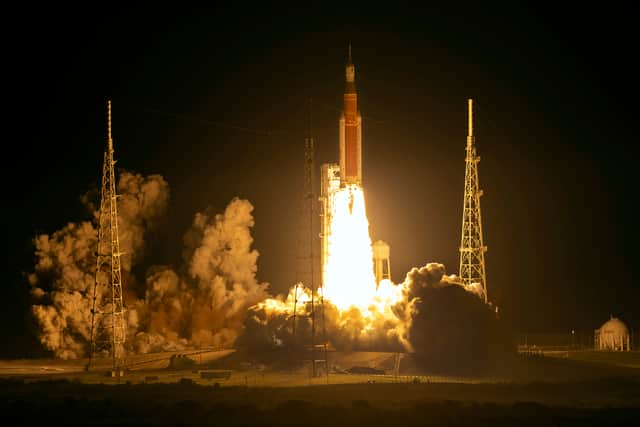UK firm successfully achieves world’s first ‘carbon neutral rocket launch’ as 1-6 F2 satellite reach space
and live on Freeview channel 276
A satellite built by a UK company has become the first “carbon neutral” rocket to successfully launch into space. The 1-6 F2 satellite, built by London-based Inmarsat, took off from Cape Canaveral in Florida, USA on Friday (February 17).
Inmarsat CEO Rajeev Suri, explained that the rocket achieved carbon emission neutrality via carbon offsetting projects including a biodiversity reserve in Indonesia, community reforestation in Ghana and a gigawatt solar power farm in Rwanda.
Advertisement
Advertisement
In an interview with the Independent following the launch, Mr Suri said: “We’re offsetting roughly 5,000 metric tons of carbon dioxide emissions associated with the launch. We’re also funding several sustainable projects across the world, through renewables, reforestation and afforestation."
The 1-6 F2 spacecraft was launched into space about the SpaceX Falcon 9 rocket from Cape Canaveral, reaching a top speed of almost 40,000km/h before reaching space above central Africa. The satellite will now spend several months circling Earth’s in its geostationary orbit 36,000 kilometres above the equator.
The launch on Friday was certified the first ever carbon neutral by The CarbonNeutral Protocol, which is the world leading framework for carbon neutrality. However the true impact of rocket launches is relatively unknown, as they occur rarely and infrequently, and the pollutants are way higher up in the stratosphere and mesosphere which makes it harder to compare to aviation.
Mr Suri said on Saturday: “I want to extend my profound thanks and appreciation to our dedicated employees and partners who have made this launch a reality. Our I-6 programme has been six years in the making. Last night’s launch marked another milestone as we revolutionise global communications at scale.


Advertisement
Advertisement
“Of course, this is not the end. Along with the I-6s, we will add five more advanced spacecraft to our fleet by 2025 as part of our fully funded technology roadmap. That will allow us to continue to meet our customers’ needs into the 2030s and beyond, while enabling new technologies for a smarter, more connected Earth.”
